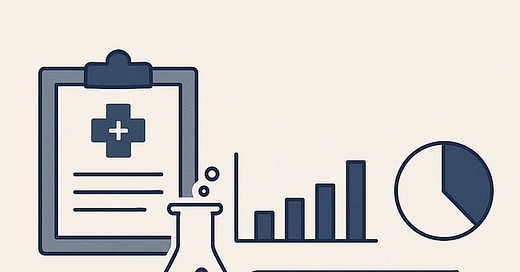“Longevity expert: The healthiest, longest-living people eat these 6 foods in the morning” -- CNBC “Healthy Habits May Offset Brain Aging Linked to Shorter Telomeres” --Neuroscience News “Scientists Find That Taking This Vitamin May Help You Live Longer” --Prevention.com
Health news is full of exciting sounding headlines, designed to catch your eye and stick in your brain. The goal is to get you to click on the headline and share the article. But I bet your goal in reading health news is something different: to learn how to live your best and healthiest life. Which means you need to be able to see past the catchy headline and tease out the actual facts.
Here are 3 tips for making sense of health news:
1. Cause and effect requires change, so ask yourself: Does anyone in this study change their behaviors?
The fundamental idea behind causation is the idea that when changing the cause leads to changes in the effect.
Think of the example of a light switch. The light switch controls whether your light is on or not, even when you aren’t touching it. But you can’t know that it controls the light until you’ve tried flipping the switch — or until you’ve seen someone else flip it.
The same thing is true of health behaviors. Healthy eating, exercise, mediation, vitamins, etc, might be making people live longer, healthier lives, but we generally can’t know for sure that they do without flipping the metaphorical light switch. That is, either we conduct some type of experiment or trial where we specifically ask people to engage in various health behaviors that they weren’t necessarily doing before, or we find people who have changed their behaviors and we compare them to people who haven’t.
Because if we just look at people who are already eating lots of broccoli, maybe those people are also very different from other people in lots of other ways. And maybe those other ways are why they live longer. Not the broccoli at all.
So, my number one tip for assessing a health-related claim: Does anyone in the study change their behaviors?
If not, then this is probably about as useful as looking at a row of light switches. Sure, you can conclude that some of them must affect lightbulbs somewhere. But which lightbulbs, and where? Without flipping switches, you don’t know.
Keep reading with a 7-day free trial
Subscribe to E is for Epi to keep reading this post and get 7 days of free access to the full post archives.




